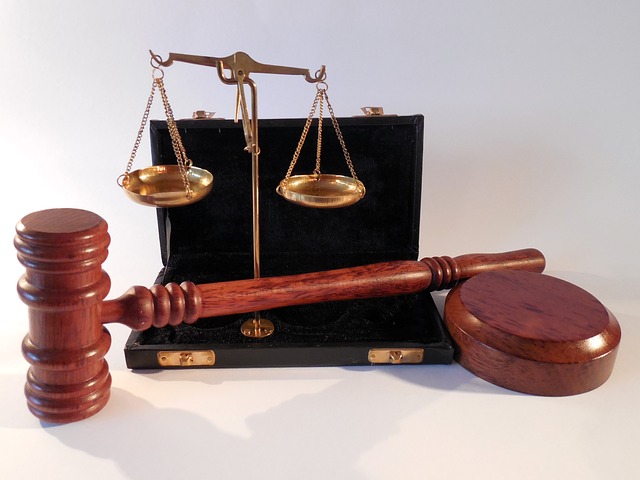Legalization makes an activity legal and regulated, while decriminalization removes legal penalties but doesn’t establish a regulatory framework.
TL;DR Legalization Vs. Decriminalization
Legalization involves removing all legal restrictions on an activity or substance, allowing it to be regulated and controlled by relevant authorities. This approach has been adopted for various purposes such as cannabis use in some countries and states. It provides a framework for taxation, quality control, and consumer protection while eliminating criminal penalties.
Decriminalization focuses on reducing or eliminating criminal sanctions associated with certain activities or substances without fully legalizing them. Under a decriminalized system, these activities may still be subject to civil penalties such as fines but would not result in imprisonment or criminal records.
Understanding the Terms: Legalization
When we talk about legalization, we’re referring to a process by which certain activities or substances that were once prohibited under the law are now made legal. This means that individuals can engage in these activities or use these substances without fear of facing criminal charges.
Legalization often involves a comprehensive regulatory framework that sets out specific guidelines and restrictions for the lawful practice of the activity or use of the substance. These regulations aim to ensure public safety, control distribution, and generate revenue through taxation.
It’s important to note that while legalization removes criminal penalties associated with an activity or substance, there may still be regulations in place regarding age restrictions, licensing requirements for businesses involved in production or distribution, and limitations on where consumption can take place.
The concept of legalization extends beyond just recreational activities. It also encompasses issues such as same-sex marriage rights or even gambling laws. By legalizing these actions or practices, societies aim to promote personal freedoms while ensuring appropriate safeguards are in place to protect individuals from potential harm.
Legalization is often viewed as a more progressive approach compared to other alternatives like prohibition or decriminalization because it allows for greater regulation and control over potentially controversial endeavors. However, it’s essential to consider both sides when assessing its impact on society as well as any potential unintended consequences that may arise.
Understanding the Terms: Decriminalization
Decriminalization is a term often confused with legalization, but they have distinct differences. While legalization refers to making something legal and regulated, decriminalization means removing criminal penalties for certain actions or substances. It does not mean that these actions or substances are completely legal, but rather that the punishment is reduced to a civil fine or other non-criminal penalty.
In the context of drug policy, decriminalization typically means that possession of small amounts of drugs for personal use is no longer considered a criminal offense. Instead, individuals may face fines or mandatory education programs as consequences. This approach aims to shift the focus from punishment towards harm reduction and public health.
It’s important to note that decriminalizing an action or substance does not necessarily mean condoning it. Rather, it acknowledges that punitive measures may not be the most effective way to address certain issues in society.
Decriminalization has been implemented in various countries around the world with mixed results. Some argue that it reduces unnecessary incarceration rates and allows law enforcement resources to be redirected towards more serious crimes. Others believe it sends a message of tolerance and compassion while reducing stigma associated with certain behaviors.
However, critics worry about potential negative consequences such as increased drug use or undermining efforts to combat illicit markets. They argue that strict regulation and control provided by legalization would offer better outcomes in terms of safety standards and revenue generation.
Understanding the difference between legalization and decriminalization is crucial when discussing policies surrounding controversial topics like drugs or other activities currently deemed illegal. By exploring both approaches objectively, we can foster informed discussions about how best to address complex societal issues while prioritizing public health and individual rights.
Legalization Vs. Decriminalization – Key differences
| Aspect | Legalization | Decriminalization |
|---|---|---|
| Legal Status | Makes an activity fully legal, regulated, and subject to specific laws and rules | Removes legal penalties, but the activity may remain regulated or restricted |
| Regulatory Framework | Establishes a framework for the legal activity, including licensing, taxation, and oversight | May not necessarily create a regulatory structure and can leave the activity unregulated |
| Criminal Penalties | Eliminates criminal penalties for the activity, meaning individuals do not face arrest or imprisonment | Reduces or eliminates criminal consequences, but civil penalties or fines may still apply |
| Consumer Protection | Often includes consumer protection measures, quality control, and safety regulations | May lack the same level of consumer protections and product quality standards |
| Government Control | Involves government control over the industry, with the state often playing a significant role | Typically results in reduced government involvement and control, allowing for more personal freedom |
| Taxation | Allows for taxation of the legal activity, generating revenue for the government | May not always involve taxation, as it may not be fully regulated |
| Examples | Legalizing recreational marijuana with state-run dispensaries | Decriminalizing possession of small amounts of marijuana, making it a civil offense in some jurisdictions |
Pros and Cons of Legalization and Decriminalization
Legalization
Pros:
- Regulation and Oversight: Legalization allows for comprehensive regulation and oversight, ensuring that the activity is conducted safely and in compliance with established rules.
- Revenue Generation: Taxation of the legal activity generates revenue for the government, which can be allocated to public services and initiatives.
- Consumer Protection: Legalization often includes consumer protection measures, quality control, and safety standards, providing safer products and experiences.
Cons:
- Complex Regulation: Establishing and maintaining a regulatory framework can be complex and costly for governments.
- Opposition: Some segments of the population may oppose the legalization of certain activities on moral or health grounds.
- Black Market Competition: In some cases, the black market may continue to operate, competing with legal businesses.
Decriminalization:
Pros:
- Reduced Criminalization: Decriminalization reduces the burden on the criminal justice system and helps avoid criminal records for minor offenses.
- Personal Freedom: Individuals have more personal freedom to engage in the decriminalized activity without fear of criminal penalties.
- Focus on Harm Reduction: Decriminalization can shift the focus from punishment to harm reduction and public health, addressing addiction and substance abuse issues more effectively.
Cons:
- Lack of Regulation: Decriminalization may lack regulatory controls, leading to potential health and safety risks associated with the activity.
- Limited Revenue: It may not generate tax revenue that could be used for public services.
- Potential Confusion: Decriminalization without a regulatory framework can lead to legal ambiguity and confusion about the boundaries of acceptable behavior.
The choice between legalization and decriminalization depends on the specific activity, societal values, and policy goals. Legalization offers more comprehensive regulation and revenue potential but may involve complex oversight, while decriminalization reduces criminal penalties but may lack regulatory safeguards.
Image Credits
Featured Image By – succo from Pixabay








